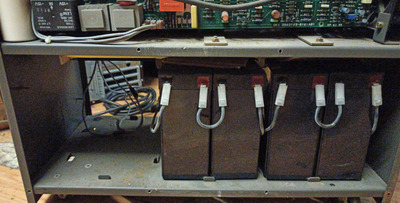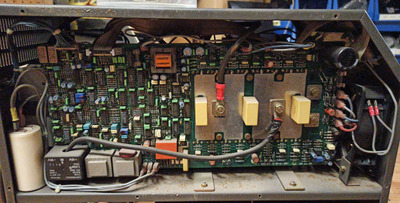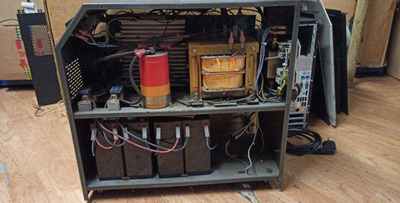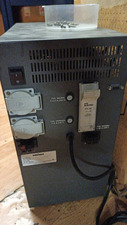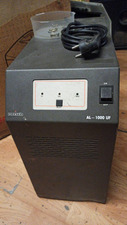First post, by Hoping
I understand that this type of question may not fit in this forum, but since it is the only one in which I am active and I pay attention to it and I think there are users with many years of experience; I am hoping someone can guide me.
Ok, the fact is that I live in an area where UPS systems are almost essential, depending on what you value your hardware of course.
I have been offered an Alcatel AL 1000-UF for which I have not been able to find any information, the only thing I know is that it has an output power of around 1400W (230v*6.3A).
It seems great to me but three things give me doubts, one that the dates that have been mentioned to me are around 1991 and another that from what I see in the photographs I think it would need 48v batteries to work, that is, a minimum of four 12v batteries in series, maybe a modern 48v would also be an option, but... the price of the batteries is important. And I don't know the most important thing for me either, I don't know if it's online, offline, line interactive, double conversion, if it's offline I wouldn't be interested since voltage drops are also common here, not just blackouts.
I am interested in knowing more because they have offered me that UPS at a cheap price from my point of view, around €30.
I am concerned about efficiency considering its age, reliability not so much since from what I see in the photographs it is full of Rubycon capacitors.
In short, although I already have some experience with UPS, I have APC, Emerson, Rielo, but I didn't know anything about Alcatel, and that's why I'm worried about investing in batteries without knowing more so that it turns out not to be useful.
I understand that this type of question may not fit in this forum, but since it is the only one in which I am active and I pay attention to it and I think there are users with many years of experience; I am hoping someone can guide me.
Ok, the fact is that I live in an area where UPS systems are almost essential, depending on what you value your hardware of course.
I have been offered an Alcatel AL 1000-UF for which I have not been able to find any information, the only thing I know is that it has an output power of around 1400W (230v*6.3A). It seems great to me but two things give me doubts, one that the dates that have been mentioned to me are around 1991 and another that from what I see in the photographs I think it would need 48v batteries to work, that is, a minimum of four 12v batteries in series, maybe a modern 48v would also be an option, but... the price of the batteries is important. And I don't know the most important thing for me either, and I don't know if it's online, offline, line interactive, double conversion, if it's offline I wouldn't be interested since voltage drops are also common here, not just blackouts.
I am interested in knowing more because they have offered me that sai at a cheap price from my point of view, around €30.
I am concerned about efficiency considering its age, reliability not so much since from what I see in the photographs it is full of Rubycon capacitors.
In short, although I already have some experience with sais, I have APC, Emerson, Rielo, but I didn't know anything about Alcatel, and that's why I'm worried about investing in batteries without knowing more so that it turns out not to be useful.
Please, if someone considers that the question should not be here, let me know, thanks.
